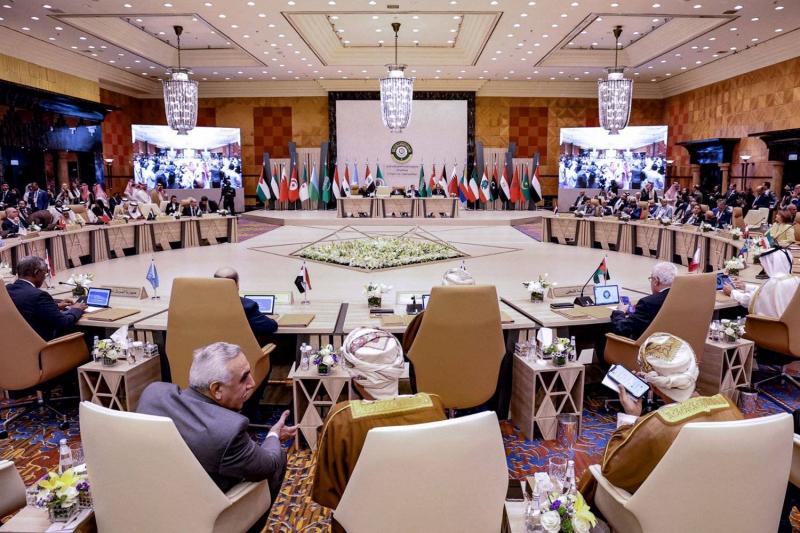As the Arab Summit kicks off in Jeddah today, Friday, for its thirty-second session, it is planned that the agenda of Arab leaders will focus on several key issues. The draft final statement of the Arab Summit includes more than 30 issues related to Arab world affairs, starting from the Palestinian cause, the Syrian crisis, and the Lebanese situation, to the Iranian file, as well as environmental issues, cybersecurity, and economic and social files.
The Arab League emphasized in the summit statement that the Palestinian cause is central to the Arab nation as a whole, affirming the Arab identity of occupied East Jerusalem as the capital of the State of Palestine, and the right of the State of Palestine to absolute sovereignty over its territory occupied in 1967, including East Jerusalem, alongside the importance of activating the "Arab Peace Initiative."
Regarding Lebanon, the statement urged Lebanese authorities to continue efforts to elect a president and form a government as soon as possible, in addition to conducting economic reforms to overcome the crippling crisis.
For Syria, the draft statement underscored the commitment to maintaining Syria's sovereignty, territorial integrity, and stability, along with intensifying efforts to help it emerge from its crisis and end the suffering of the Syrian people.
In relation to Sudan, complete solidarity was affirmed in maintaining the sovereignty and independence of the country and its territorial integrity, rejecting interference in its internal affairs, and considering the crisis as a "domestic issue," while preserving institutions.
Concerning developments in Libya, the draft reaffirmed the commitment to the unity and sovereignty of Libya and the integrity of its territory, rejecting all forms of external interference and refraining from escalation.
Regarding Yemen, the draft discussed the commitment to the unity and sovereignty of the country, reaffirming continued support for the legitimate Yemeni government led by the Presidential Leadership Council headed by Rashad Mohammed Al-Alimi, enhancing its role and support.
In support of Somalia, the statement called for aiding the Somali government's efforts in its comprehensive war against terrorism, particularly against the "al-Shabaab" movement, with the aim of eliminating it, while praising the Somali National Army.
The draft statement also emphasized the absolute affirmation of the UAE's sovereignty over its three islands (Greater Tunb, Lesser Tunb, and Abu Musa).
Regarding the Iranian file, the statement welcomed the agreement reached between Saudi Arabia and Iran in Beijing, which includes the resumption of diplomatic relations, reopening their embassies, and activating the security and economic cooperation agreement between the two countries.
As for Turkey, the draft statement condemned the Turkish forces' incursion into Iraqi territory, demanding the Turkish government withdraw its forces unconditionally.
Concerning the fight against terrorism, the draft condemned all forms of criminal operations carried out by terrorist organizations in the Arab countries and worldwide, calling on Arab states that have not ratified the Arab Convention on Combating Terrorism to do so.




